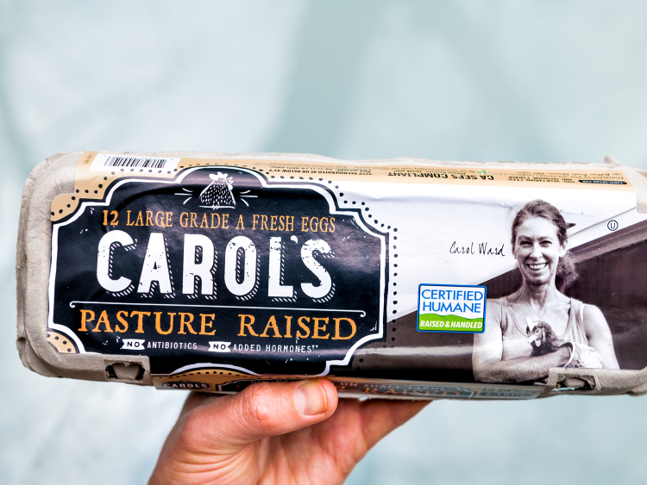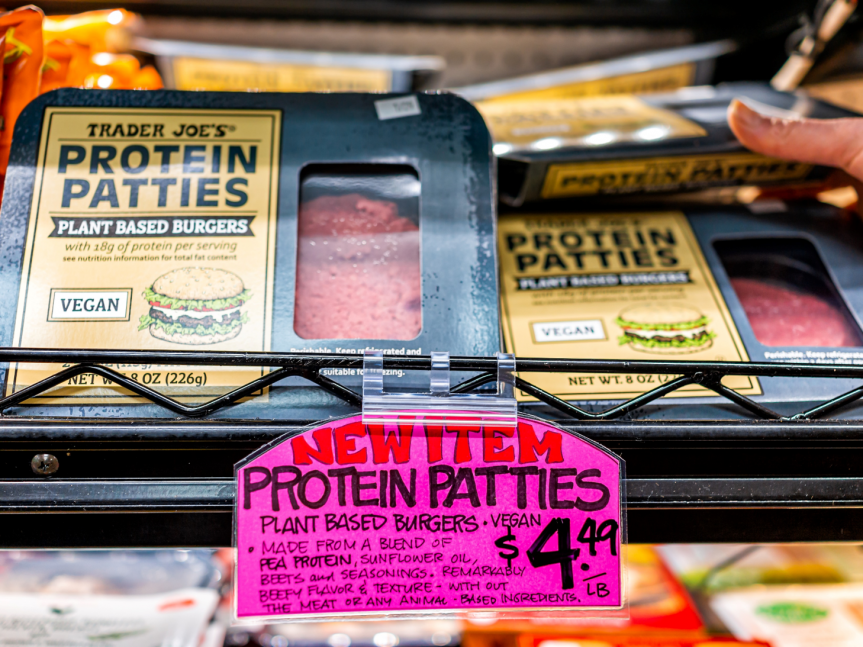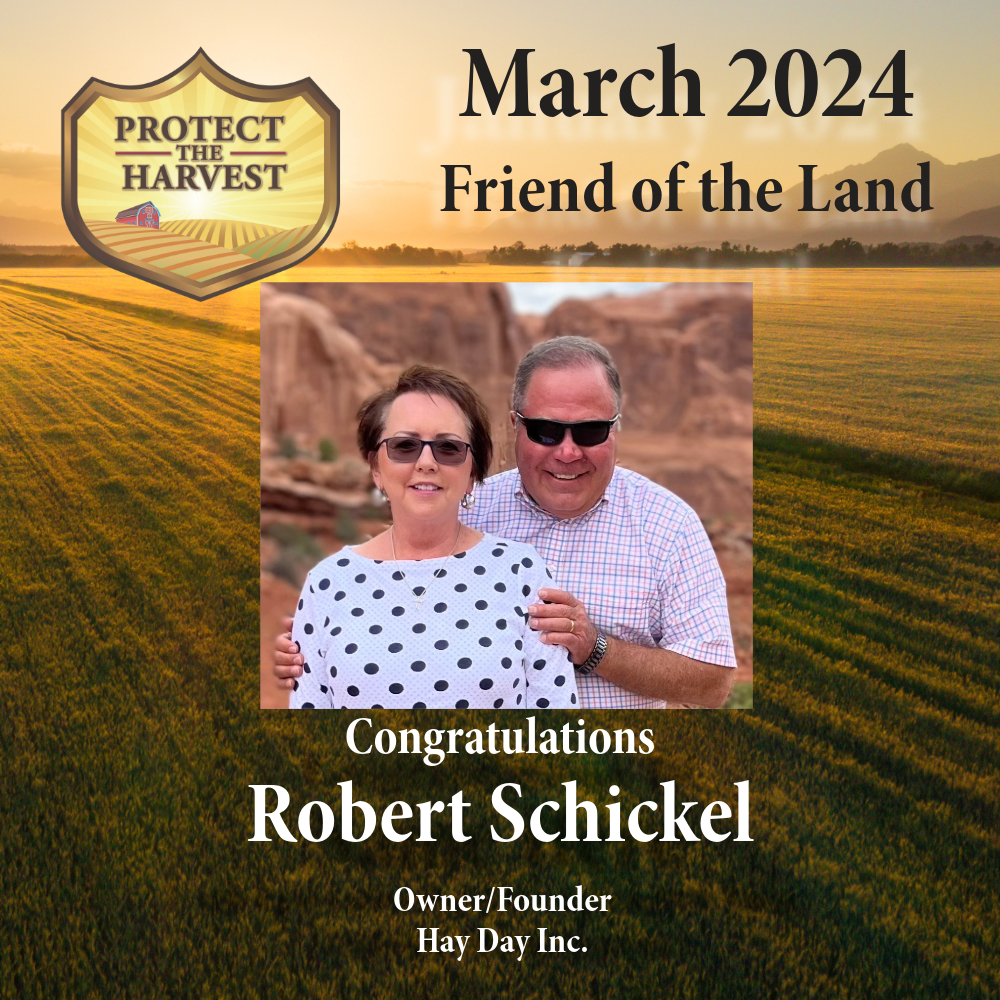By Jaclyn Krymowski for Protect The Harvest
Access to adequate food is an extremely important topic. All people deserve to have access to safe and nutritious foods. In today’s society, there are numerous questions to ask about food, food security, and the recent focus on elite foods.
• Are various food-focused social justice initiatives really pushing towards the goal of safe, nutritious foods, or are they working to redefine what safe and nutritious means?
• Do the groups who are trying to make “safe” and “nutritious” simultaneous with buzzwords like “organic,” “plant-based,” and “all-natural,” know what impact their actions have on food equity?
Food Bullying is a Reality and It Starts with Food Marketers and Their Counterparts: Animal and Environmental Extremists
In her book, Food Bullying, author Michele Payn points out that people may find themselves selecting certain food products or labels because of how it will make them feel, increase their status, or earn praise from peers. The choices they make aren’t necessarily derived from nutrition or safety, but from an elitist mindset.
We Support All Forms of Agriculture – We Do Not Support Misinforming the Public
There is nothing wrong with providing high quality products to the elite buyer. We support organic farming and conventional farming. We also support different types of animal production systems. What we do not support is the practice of misinforming the public about our food system and the nutritional value of the foods. We believe it is morally wrong to provide disinformation about affordable foods that are the staple of the American public.

Why are We Making the Statement that these Groups are Partners in Crime?
Many of these elite food marketing groups and companies tap into the false narrative established by animal and environmental extremist groups to push their own products. Elitist marketers and their counterparts, animal and environmental extremist groups, have purposely overlooked and ignored the reality that our modern food systems provide safe, nutritious, humane and most importantly, affordable food. Through their marketing they repeat the negative disinformation about modern agriculture propagated by animal and environmental extremist groups. Keep in mind that animal extremists want to end all animal agriculture and view animal ownership as akin to slavery and abuse. Environmental extremist groups view humankind as a global parasite and they have been pushing this narrative for years. This provides a convenient, already established narrative that elite food companies and marketers can tap into. Animal and environmental extremist groups are in a sense, saving elite food marketers money since they have already worked to establish a false narrative in which they can use as a platform to sell their food products. They use the false narrative designed and marketed by extremist groups to enforce the false notion that vegan and elite type foods are the epitome of good health.
What is worse is that marketers for elite foods frown upon families who choose products they deem are “over-processed” or “unhealthy.” Not only are these accusations unfounded, but those same families simply don’t have the money to spend on expensive alternatives. Without affordable animal protein products like eggs, dairy, beef, pork, and poultry, they’d have no other choice but to go hungry.

Veganism is Elitist and Unhealthy
One of the dangers of the vegan animal extremist ideology is their insistence that their proposed diet is suitable for everyone and entirely “natural.” They ignore the facts and put the health of people at risk in favor of their radical ideology. Animal extremist groups also ignore the stark reality that the animal extremist vegan lifestyle requires some degree of supplementation to meet lacking nutrients found in abundance in animal products like B12, iron, and Vitamin D to name a few. Additionally, vegan meat and dairy substitute products like fake bacon, processed pea patties, fake cheese and nut juices that are supposed to replace milk, are significantly more expensive compared to wholesome real meat and dairy products. If those manipulated into following the vegan ideology cannot afford those products they are then only able to afford produce and grain staples.
From a health perspective, vegan diets are not recommended for everyone. Physicians from all over the world have warned against the dangers of vegan diets in children, citing multiple instances of malnutrition and average delayed growth patterns. In some countries forcing children to eat a vegan diet is considered child abuse and a crime.
Food Elitism is Not Family Friendly
Unfortunately, years of plentiful eating have blinded a lot of the elite to the fact that so many under-privileged families rely on our affordable and sustainable food system. The trend of companies serving the elite and wealthy have taken advantage of this ignorance in their marketing tactics.
Most people cannot afford to shop at high-end grocery stores like Whole Foods, Trader Joe’s and types of farmers’ markets. On average, their groceries are about 20% more expensive compared to traditional stores reflecting a privilege of the elite class.
Examples of Nefarious Marketing Tactics Which Mislead the Public
Nefarious food product marketing tactics take many forms. Many marketing firms and elite food companies use scare tactics to sell their products. Using false or exaggerated disinformation, their messaging heavily implies that other foods are nutritionally inferior and unsafe compared to certain products that are produced the “right” way. Of course, the “right way,” is their way. Their marketing messaging fully ignores the facts about food safety and the USDA’s role in ensuring the food items people purchase are safe to consume. What these marketing tactics don’t tell people is that conventionally raised meat, eggs, and dairy fall under the safest food inspections and regulations in the world. Likewise, they have a very similar nutritional profile to food items which are marketed as “pastured raised” or “organic.”
These scare tactics can be especially harmful to low-income and underprivileged families who are led to believe that they are not and cannot feed their families properly.
Cooks Venture is an example of elitist marketing and pricing. They are a food delivery service focused on pasture-raised beef and chicken (they have plans to expand their lineup soon). A 9 to 10-pound box of their assorted beef and chicken cuts goes for $149.99. By comparison, the average cost per pound of conventional whole chicken is just $1.70 and beef is $4.73.
“Good food is vital for health and happiness,” says their website, heavily implying that their meats are ‘good’ compared to other conventionally raised products.
The site continues:
“Despite the pastoral images and marketing claims, almost all meat today comes from mainstream operations that are labeled with greenwashed buzzwords. Finding food that is good for both us and the planet doesn’t have to be this hard.”
While marketing language, this tone is harmful as it reinforces a misconception that is already so rampant among consumers: that products derived from conventional animal agriculture is inferior to niche products sporting labels like “grass-fed” “pasture-raised” “organic” or “all-natural.” Keep in mind that the definitions for some of these products are not even officially defined.
A company with a similar marketing approach is ButcherBox, which says it “was started with the idea that everyone should have access to high-quality, humanely raised meat.” But is their $149/month delivered box of 9 to 14 pounds of meat really accessible to everyone?
“We only work with companies and farmers that are dedicated to doing the right thing,” continues the website, “never cutting corners…”
This is yet another example of a company which is painting conventional, modern animal agriculture as the enemy. The goal is to the shame the elite into purchasing their products and it fully ignores those who cannot afford the high-end products they are pushing.
Food Insecurity is the Real Issue
Despite being one of the wealthiest nations in the world, Americans still fall into the “food insecure” category making up about 10.5% of households in 2019, according to data from the Department of Agriculture. In poorer countries, that number is much higher with some having notable portions of their populations being chronically malnourished.
A pivotal solution to all of this starts, of course, at the farm level. However, the disconnect between large farms, modernization and food equity is unfortunately ongoing. A Global Washington article cites increasing farm efficiency productivity as being necessary to help alleviate the rising cost of food products. This includes “a comprehensive approach that includes access to heartier seeds, more effective tools, improved farm management practices, locally relevant knowledge and reliable markets.” University researchers and livestock veterinarians have dedicated decades to refining modern farming practices to provide humane, sustainable, wholesome, and affordable foods. Large farms, especially those in first-world countries, have embraced the research available to them and implemented modern practices. Unfortunately, the Global Washington article leaves out the vital role of research and modern farming practices. Instead, it cites small farms (without defining what that term means) as being part of the solution.
Diane Sullivan Fights for Food Security
In her testimony before the U.S. House Subcommittee on Economic and Consumer Policy on February 6, 2020, food security activist Diane Sullivan, shared her insight into the real-world implications of food elitism as a mother who has experienced hunger and homelessness.
“Too often, food policy debate in this country exclusively takes place among those in power—elected officials, scholars, researchers, both for-profit and non-profit special interest groups, and more,” she shared. “Rarely are those of us with lived experience in hunger invited to the table when the policies that directly impact our lives are discussed, designed, and implemented. This is increasingly the case as retailers, policymakers, state ballot initiatives, and more press to regulate farmers in such a way that eliminates affordable, safe and nutritious food choices and drives up the cost of our food.”
Sullivan also commented on the significant role that hardworking farmers and ranchers play in the conventional food system to make food equitable to struggling households.
“My experience has taught me that productive farmers and ranchers in this country are perhaps among the best friends low-income people could have,” she stated. “They provide us the broadest choices of safe and affordable food options in the world, so long as they are permitted to do so. As low-income consumers, we remain stuck in the middle of policies that increase the cost of our food…”
In 2016, Sullivan was the campaign manager for a ballot committee that opposed a ban on sales of meat and eggs from animals raised in large modern farms (Massachusetts Question 3) – which is the vast majority of affordable and conventionally raised animal products.
“On so many occasions, I’ve been in a position where I haven’t been able to feed my children an appropriate meal,” Sullivan shared in an interview for a local publication. “When my SNAP benefits have run out, my paycheck is still a couple of days away, I’ve been able to go to the grocery store, gather up a dollar in change, purchase a dozen eggs and feed my children at least a source of protein.”
“My passion is driving me. I know what hunger looks and feels like. Who’s going to take on an organization like the Humane Society of the United States to defend poor people? Poor people are too often voiceless.”
The Farm Systems Reform Act Will Drive Up the Price of Affordable Food
In addition to recent attacks on affordable food and modern agriculture like Mass Question 3, California’s Prop 2 and Prop 12, there are animal extremist influenced politicians continuing to push their ideology while ignoring the impact on American families.
Consider the average monthly expenses of an American family on their grocery bill. Many familes are going hungry now and that is without a major disruption to the conventional food system. Such a disruption to animal-derived proteins in particular would be catastrophic. The Farm Systems Reform Act is one of the latest legislative efforts being pushed by vegan extremist Senator Cory Booker. This piece of legislation will harm families in the name of food elitism and vegan ideology and it is being done on the national level.
Animal Extremist Ballot Initiatives to Drive up the Price of All Food
In addition to federal legislation, state ballot initiatives in Colorado and Oregon are the most recent targeted attacks on animal agriculture by animal rights vegan extremists. They are pushing to eliminate animal protein products from the diets of citizens in those states under a false animal welfare pretense. These initiatives would cripple the states’ animal industries and force an unhealthy diet on growing families by making affordable and nutritious animal protein products prohibitively expensive. Not only would this cripple animal agriculture, but those farmers growing feed for the animals would also be hit hard if they had fewer ranchers buying their products.
A Balanced Food System
Each year hundreds of millions of people go hungry around the globe. Many of those who do have access to food are still deficient in essential vitamins and nutrients. In the U.S. alone, it is estimated over 92% of the population suffers from at least one vitamin or mineral deficiency. At least 10% have a broader type of nutritional deficiency.
Many of the most common deficiencies found throughout the world can be easily addressed by consuming animal protein products. Iron deficiency, for example, affects over 25% of the world. A single three-ounce serving of ground beef (one of the most affordable beef products) covers almost 30% of the recommended daily value for iron.
Because vitamin B12 absorption decreases with age, there is an estimated 20% of older adults that are deficient in this vitamin. Meat, milk, and eggs are all abundant accessible sources.
These are just a few brief examples of vitamins that are essential and found easily in animal products.
Modern Agriculture Provides Affordable, Nutritious, and Sustainable Food
Modern agriculture and livestock production practices make food affordable and are more sustainable. They help control food byproduct waste and decrease food disparity among households. Americans today only spend less than 10% of their income on food. For poorer nations, and low-income American households, that percentage is easily 40% or higher.
Modern state of the art practices in American agriculture have been developed to feed citizens efficiently and affordably. Everything in our food system including research, farming practices, and subsidies all reflect this mindset. Not only are nutritious foods plentiful and accessible, but they also empower consumers with freedom of choice.
The pursuit of an equitable food system should be about offering more choices, not less, to consumers to meet their dietary needs. Restricting them with only expensive alternatives is food elitism that leaves so many vulnerable families to struggle with life’s most basic necessities.
Links to More Information
Read more about household spending on food HERE
Read more about the dangers of vegan diets in children HERE
Read more about the Farm Systems Reform ActHERE
Read more about nutrient deficiency in the population HERE and HERE
Read Sullivan’s testimony HERE
Read more about Sullivan HERE
Read Global Washington article HERE
See average cost of U.S. animal producers HERE
Read more about Prop 12 HERE and HERE



